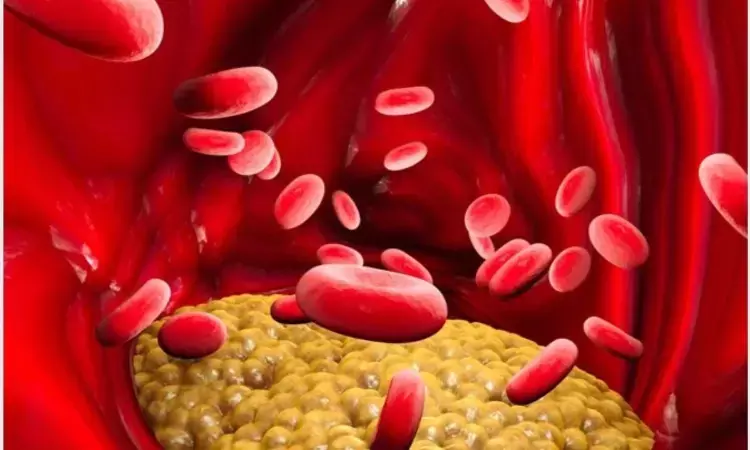- Home
- Medical news & Guidelines
- Anesthesiology
- Cardiology and CTVS
- Critical Care
- Dentistry
- Dermatology
- Diabetes and Endocrinology
- ENT
- Gastroenterology
- Medicine
- Nephrology
- Neurology
- Obstretics-Gynaecology
- Oncology
- Ophthalmology
- Orthopaedics
- Pediatrics-Neonatology
- Psychiatry
- Pulmonology
- Radiology
- Surgery
- Urology
- Laboratory Medicine
- Diet
- Nursing
- Paramedical
- Physiotherapy
- Health news
- Fact Check
- Bone Health Fact Check
- Brain Health Fact Check
- Cancer Related Fact Check
- Child Care Fact Check
- Dental and oral health fact check
- Diabetes and metabolic health fact check
- Diet and Nutrition Fact Check
- Eye and ENT Care Fact Check
- Fitness fact check
- Gut health fact check
- Heart health fact check
- Kidney health fact check
- Medical education fact check
- Men's health fact check
- Respiratory fact check
- Skin and hair care fact check
- Vaccine and Immunization fact check
- Women's health fact check
- AYUSH
- State News
- Andaman and Nicobar Islands
- Andhra Pradesh
- Arunachal Pradesh
- Assam
- Bihar
- Chandigarh
- Chattisgarh
- Dadra and Nagar Haveli
- Daman and Diu
- Delhi
- Goa
- Gujarat
- Haryana
- Himachal Pradesh
- Jammu & Kashmir
- Jharkhand
- Karnataka
- Kerala
- Ladakh
- Lakshadweep
- Madhya Pradesh
- Maharashtra
- Manipur
- Meghalaya
- Mizoram
- Nagaland
- Odisha
- Puducherry
- Punjab
- Rajasthan
- Sikkim
- Tamil Nadu
- Telangana
- Tripura
- Uttar Pradesh
- Uttrakhand
- West Bengal
- Medical Education
- Industry
High triglyceride levels linked with increased risk of prostate cancer: Study

China: Higher triglyceride levels can increase the risk of prostate cancer (PCa), is the conclusion drawn from a recent study published in BMC Urology.
The extensive Mendelian randomization (MR) analysis suggested the potential causal effect of triglyceride on prostate cancer. The odds of prostate cancer would risk with high triglyceride levels.
Prostate cancer is the primary cancer type and the second cause of death in men globally. The etiology of prostate cancer remains largely unknown, and no modifiable risk factors are identified. Many studies have suggested the role of triglyceride in PCa development; some indicated a positive correlation, while others suggested a negative correlation. However, there is no certainty concerning the true association between triglyceride and PCa, which is controversial.
Considering the above, it becomes necessary to disentangle the causal relationship between triglyceride and prostate cancer. Therefore, Shusheng Zhu and colleagues from China aimed to shed light on the causal relationship between triglyceride and PCa through an MR.
For this purpose, the researchers performed two-sample Mendelian randomization (MR) with data from the triglyceride genome-wide association study (GWAS) of 177,861 people and GWAS summary statistics of PCa among 463,010 individuals. Forty-eight single nucleotide polymorphisms (SNPs) of triglyceride were then used as instrumental variables (IVs) to conduct MR analysis on PCa. Weighted median, Inverse‐variance weighted (IVW), Simple mode and Weighted mode, and MR‐Egger regression were used for MR analysis. The team performed a pleiotropy test, heterogeneity test, and leave-one-out sensitivity test to verify the data's sensitivity.
The study demonstrated the following findings:
· Association for an effect of triglyceride on PCa risk was found in
inverse variance weighted (IVW) (odds ratio [OR]: 1.002).
· Opposing results were seen using the weighted median (OR: 1.001) and MR‐Egger (OR: 0.999) approach.
· After MRPRESSO, the same result was obtained using the IVW method (OR: 1.002).
"Our MR analysis indicated the potential causal effect of triglyceride on PCa. The odds of PCa would rise with high triglyceride levels," the authors concluded.
"Using in vivo and in vitro models, evidence from experimental research showed that they may induce prostate cancer by modulating signaling pathways, which promote carcinogenic processes such as cell proliferation and growth, inflammation, oxidative stress, and cell migration," the researchers wrote in their study. "Triglyceride-rich remnant-like particles induce cancer through the upregulation of cell signaling pathways which are involved in controlling cell proliferation and growth, cell cycle arrests, and apoptosis.'
Reference:
Zhu, S., Hu, X. & Fan, Y. Association of triglyceride levels and prostate cancer: a Mendelian randomization study. BMC Urol 22, 167 (2022). https://doi.org/10.1186/s12894-022-01120-6
Dr Kamal Kant Kohli-MBBS, DTCD- a chest specialist with more than 30 years of practice and a flair for writing clinical articles, Dr Kamal Kant Kohli joined Medical Dialogues as a Chief Editor of Medical News. Besides writing articles, as an editor, he proofreads and verifies all the medical content published on Medical Dialogues including those coming from journals, studies,medical conferences,guidelines etc. Email: drkohli@medicaldialogues.in. Contact no. 011-43720751


